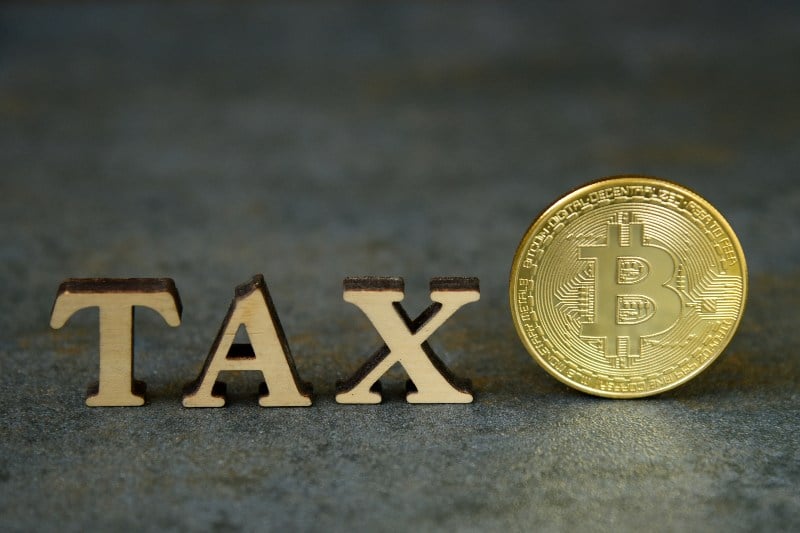The registry for exchanges has arrived in Italy. It took several years to see the implementing decree. But at last, the list of cryptocurrency operators has finally been established at the Oam, the body of agents and credit brokers.
Summary
The register for exchanges in Italy
At least this is what is circulating in these hours among the press and we are expecting the publication of the news on the MEF website soon.
The agency already deals with the management of the lists of agents involved in financial activities and credit brokers, as well as money transfers, currency exchangers and gold dealers.
And now it will have jurisdiction over “service providers relating to the use of virtual currencies and providers of digital wallet services” who will be required to communicate their operations on the national territory.
Therefore, not only Italian companies but all providers (including foreign ones) operating on the national territory.
What the Register provides for
In the document circulating, among other things, it is specified that the obligation to communicate for registration also applies when:
“the activity of service providers related to the use of virtual currencies and providers of digital wallet services, including foreign ones, is carried out remotely, via telematic means, in the territory of the Republic, possibly also using websites and applications that offer the aforementioned services in Italian”.
All this will allow the MEF to have an up-to-date view of the exchange landscape in Italy.
In fact, the decree provides for the submission by the Oam to the Ministry of the Economy of a six-monthly report “containing aggregate data relating to the number of service providers involved in the use of virtual currencies and digital wallet services that have been registered.
This monitoring will make it possible to identify potential cases of abusive activity.
But not all is set in stone because we are waiting to read the text of the decree.
All of this is based on the assumption that cryptocurrencies are comparable to currencies that have been forcibly traded like the euro.
But who has the courage to give crypto the dignity of currency by law?

Cryptocurrency regulations in Italy
Let’s do a brief summary to jog our memory.
Defining them as currencies is, from a strictly legal point of view, completely inappropriate.
Sometimes they are a means of payment, other times they are considered real financial instruments, and sometimes they are digital works or securities representing goods, assets or services.
A big problem to define them.
The European Union is trying with ART, EMT, SART, SEMT, and other hybrid tokens.
In the meantime, the Italian Parliament, after having given a definition of Blockchain and Smart Contract, is still keeping its distance from crypto definitions.
But it doesn’t give up applying rules typically referable to FIAT currencies.
This is the case of the registry of suppliers of exchange services between virtual currencies and currencies with forced course.
European directives
The Fifth AML Directive – Directive (EU) 2018/843 of the European Parliament and of the Council of 30 May 2018 on the prevention of the use of the financial system for the purpose of money laundering and terrorist financing and amending Directives 2009/138/CU 2013/36/EU – extended the anti-money laundering due diligence obligations on service providers relating to the use of virtual currencies, also stipulating that member states must provide for a special registration procedure for exchange and e-wallet providers.
The Fifth AML Directive introduced, for this purpose, the concepts of “virtual currency” “exchange” and “e-wallet provider”, establishing that:
- “virtual currency” means the “representation of digital value that is not issued or guaranteed by a central bank or public entity, is not necessarily linked to a legally established currency, does not possess the legal status of currency or money, but is accepted by natural and legal persons as a medium of exchange and can be transferred, stored and exchanged electronically”, “exchange” means “providers of exchange services between virtual and hard currencies”, and “e-wallet providers” means “providers of digital wallet services that provide services to safeguard private cryptographic keys on behalf of clients in order to hold, store or transfer virtual currencies”.
The Italian legislator, decidedly proactive in this sense, had already anticipated the extension of the anti-money laundering due diligence obligations to exchanges, with the adoption of Legislative Decree no. 90 of 25 May 2017 (the “New Anti-Money Laundering Law”), whose Article 8, paragraph 1, extends the provisions of Article 17-bis of Legislative Decree no. Article 8, paragraph 1, of which extends the provisions of article 17-bis of Legislative Decree no. 141 of August 13, 2010, and subsequent amendments on the subject of anti-money laundering, to providers of services relating to the use of virtual currency, entrusting the Minister of the Economy and Finance with the issuing of a decree to establish the methods and timing with which the providers of services relating to the use of virtual currencies are required to notify the MEF of their operations in Italy, as well as the forms of cooperation between the MED and the police forces, suitable for interdicting the provision of services relating to the use of virtual currencies by providers who do not comply with the communication obligation.
In particular, the New Anti-Money Laundering Law extends the anti-money laundering due diligence obligations to the providers of exchange services between virtual currencies and fiat currencies, including them in the category of “other non-financial operators” (defined by art. 3, paragraph 5 of the Anti-Money Laundering Law), which includes, inter alia, the providers of services relating to companies and trusts, persons who carry out the activity of trading in antique items, persons who carry out the activity of auction houses or art galleries, and professional gold operators.
The provision in question also prescribes the registration of suppliers of exchange services between virtual currencies and currencies subject to compulsory exchange in a special section of the register of currency exchangers, kept by the body for the management of the lists of agents in financial activities and credit brokers (OAM), set up pursuant to art. 128-undecies of the Consolidated Banking Law.
Today it seems that this register has finally seen the light of day.
Maybe one day someone will notice that the king is naked and that, as a consequence, cryptocurrencies have acquired the deserved title of currency in the market.
With which to pay taxes.


